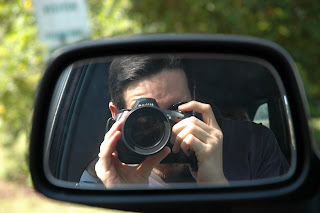Each year in January, Laetitia and I trek off (all right, we usually drive) to Mt Tamborine for a conference run by our branch of the Christian mission organisation CMS. At the conference, people record audio messages for missionaries who can't make it that year.
Currently, we use cassettes for this. They're cheap, the machines are simple and therefore easy to use, and you can make do with only a handful of machines by swapping cassette tapes in and out, one tape per missionary (or family). Unfortunately, they're also low quality, the messages now have to be digitised to be sent (they're usually actually delivered on CD these days), and (believe it or not) tapes are getting harder to find. Oh, and eventually all the old cassette decks will die and it won't be worth trying to fix them.
Is it time yet to switch to digital? If so, how? If not, when?
From what I can see the most suitable digital replacement is something like an Olympus Notetaker, say the VN-3500PC (or older equivalents, VN-3x00PC) or the WS-210S. Of course, there are other brands and models, and I'm not particularly interested in their relative merits at this point. They're all reasonably affordable, at $50–$150 each (based on a quick check on ebay).
No, what I'm interested in is this: I can see three major issues with replacing the old cassette decks with these digital devices.
1. Price & convenience—to the dishonest. These things are useful and they are not cheap. If someone steals a cassette recorder (and who would?), big deal. But these cost a reasonable amount, they're extremely useful, very sexy, and small enough to hide in a pocket and walk away with. Think: at the conference, you'd have to tether them to something very well fixed, or implement a check-out or $20 deposit system.
2. Ease of use. The young, the techno-savvy and the geeks would be able to use them. I know I would have no trouble. But the over 60s who've never used a microwave, let alone a computer? Those with arthritis or otherwise poor dexterity? (The buttons on these things are small and often don't give good tactile feedback, unlike the satisfying clunk of a cassette deck.)
3. Organising the recordings. The devices are not cheap (see point 1) so you probably don't want to buy too many (unlike the cassettes). It's also not very easy (see point 2) to sort your recordings accurately into different folders on the device. So you would probably have to ask everyone to record who their message is for at the start (e.g. "This is a message for XX. Hi XX, this is..") and then have some techie spend a significant amount of time sorting through the messages after the conference to make sure they end up going to the right people.
Point 3 is not all bad, though. Indeed, it probably wouldn't take as long to sort the messages as it currently does to digitise them. And on the upside, people could record one general message for several people at once. ("This message is for XX as well as YY. Hi guys..")
Any ideas? Comments? Suggestions?
Saturday, July 11, 2009
Subscribe to:
Post Comments (Atom)

1 comment:
You asked me to post my comments here so here they are:
Now, now, remember that the over 60s invented computers and microwave ovens and many people our age avoid learning how to send mobile 'phone text messages as too much bother. :-)
But I'll believe you that small buttons may be hard to operate, especially if you have arthritis.
Maybe the thing to do would be to trial one for one set of missos and/or have someone operate it for everyone to get them started? That would mean not having it available to use in the afternoon rest session though.
Post a Comment